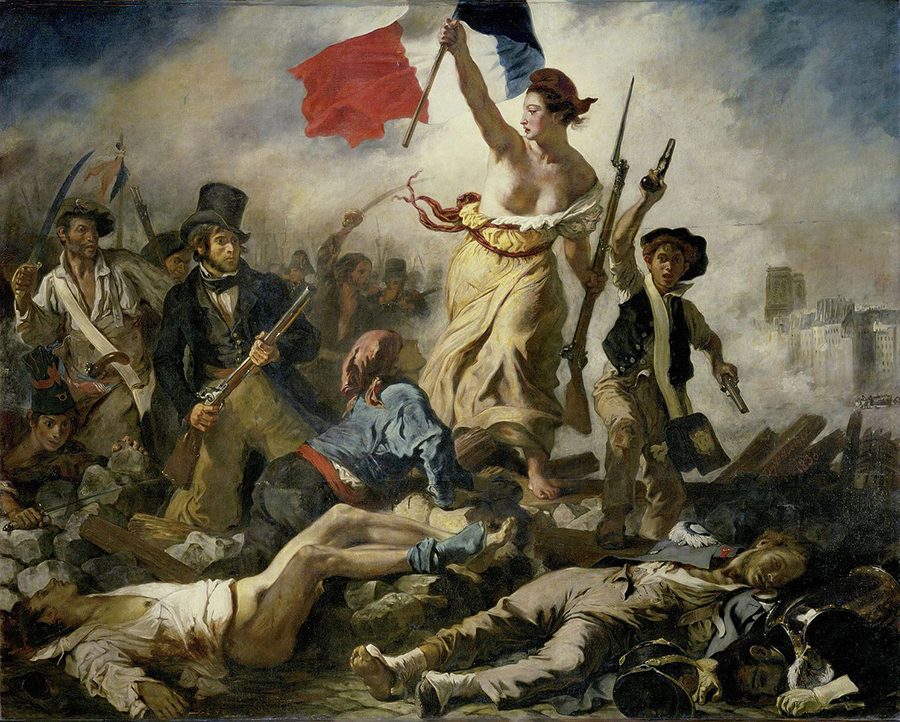Viral Photo of Palestinian Protester Compared to Delacroix’s ‘Liberty Leading the People’
The image of a young shirtless protester clutching a Palestinian flag drew art-historical comparisons on Twitter
The image of a young shirtless protester clutching a Palestinian flag drew art-historical comparisons on Twitter

A photograph of a young Palestinian protester in Gaza, clutching a Palestinian flag and wielding a slingshot has gone viral on social media, with many making art-historical comparisons, including to Eugène Delacroix’s Liberty Leading the People (1830).
The image was taken on 22 October by Mustafa Hassouna, a photographer with Turkey’s Anadolu Agency. Hassouna captured A’ed Abu Amro in the middle of a fierce protest against the decade-long Israeli blockade, rising shirtless against a backdrop of burning tyres and reporters in flak jackets.

SOAS University professor Laleh Khalili shared the image on Twitter, alongside Delacroix’s painting, which commemorated the 1830 July Revolution: Liberty holds up the Tricolore in one hand and a musket in the other, leading people across a barricade. Other social media users drew comparisons to Bernini’s sculpture David (1623–24).

‘I was surprised this picture of me went viral […] I didn’t even know there was a photographer near me’, Abu Amro said in comments to Al Jazeera. ‘If I get killed, I want to be wrapped in the same flag. We are demanding our right of return, and protesting for our dignity and the dignity of our future.’
Conflict has escalated since March with the beginning of weekly protests demanding Palestinians’s right to return to homes in Israel, with several civilians killed in the March to Return protests. In April, the Palestinian journalist Yasser Murtaja, who had worked with the artists Ai Weiwei and Basma Alsharif, was shot dead by Israeli sniper fire.
Don’t miss Christy Lange’s frieze feature from 2010 on the limitations of photojournalism and the ethics of artistic representation: ‘Particularly since 9/11, the paradox of the spectacular image has sharpened the line between classic reportage and artistic approaches.’




















